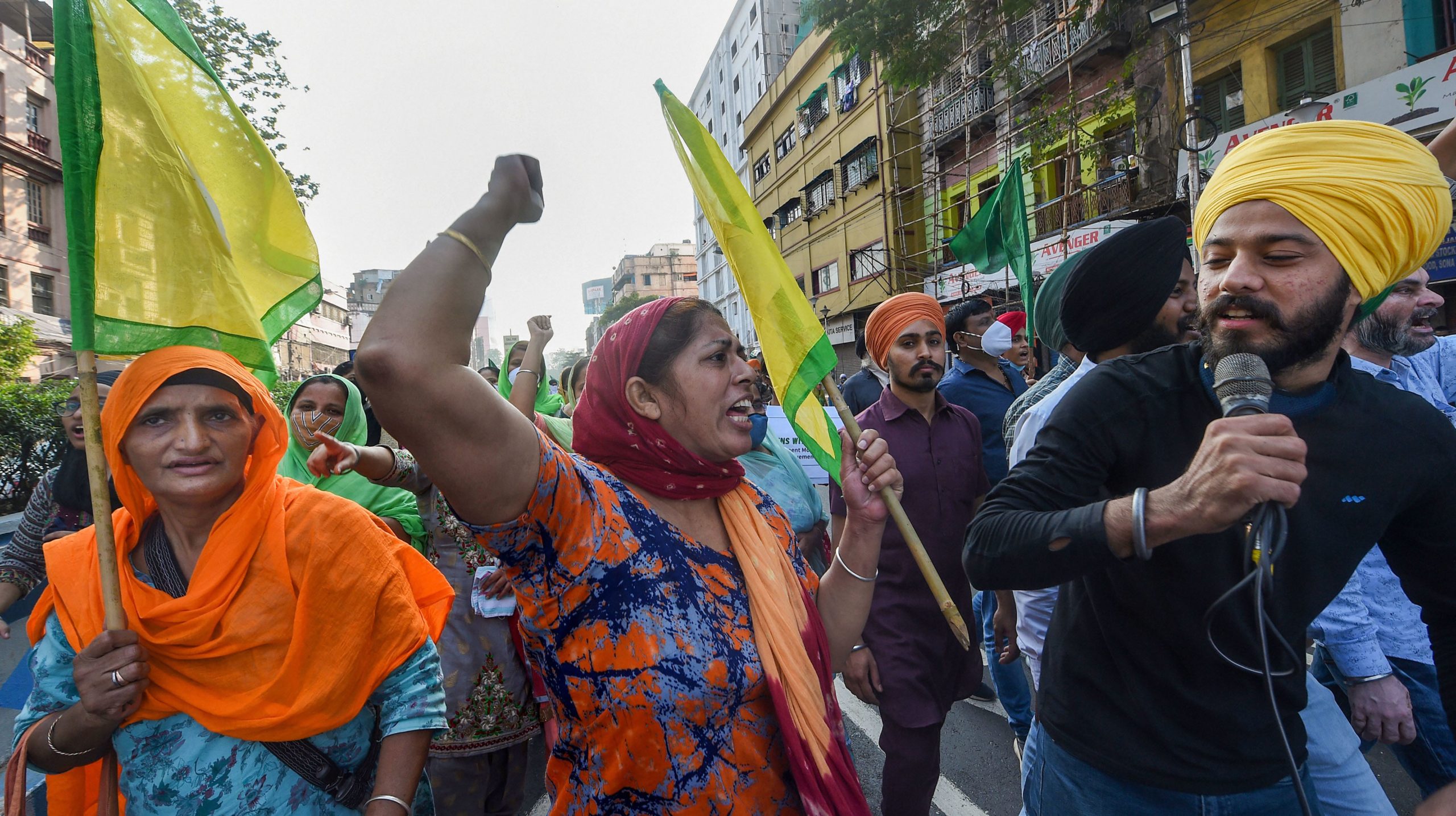Thousands of Indian farmers are pressing on with protests in and around the national capital against agricultural legislation they say could be exploited by the private sector to buy their crops at low prices.
Since September this year, several farmers’ organisations in India have been protesting the national government’s attempts to bring in three legislations, which it claims is a significant step towards agricultural reform. Farmers, however, allege that the reforms would make them vulnerable to exploitation by big corporations, erode their bargaining power and weaken the government’s procurement system, whereby the government buys staples, such as wheat and rice, at guaranteed prices.
In a protest organised in September, the Bhartiya Kisa Union had alleged that with these legislations coming into play, farmers are in danger of becoming captive to companies. Late November, farmers from the states of Haryana and Punjab initiated a long march to Delhi, the national capital, to mount pressure on the Union government. They want the government to withdraw all the three legislations, or guarantee them the Minimum Support Price for their crops by introducing a new law.
Leaders spearheading the farmers’ agitation have set new terms for talks with the Union government, demanding the Centre name and authorise a Cabinet committee or a group of ministers for future discussions.
Update: On 08 December, Tuesday, a country-wide strike by farmers in India has begun amid a standoff with the government over new farm laws. Tuesday’s strike follows three rounds of inconclusive talks between the two sides over laws that farmers say are against their interests. Another round of talks is due on Wednesday.
Cover Image: People belonging to Sikh community participate in a rally in solidarity with farmers protesting in Delhi over Centre’s farm reform laws, in Kolkata. Credit: PTI Photo

